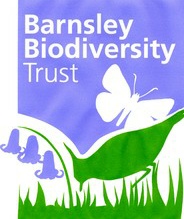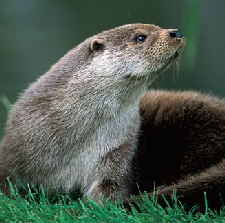



Otter conservation
The return of the Otter to most of England is one of the major conservation success stories of the last 30 years.
There is potential through local conservation measures to increase its presence in Barnsley
Reasons for decline and loss
- Water quality - Pollution including agricultural run-off.
- Loss of habitat -Intensification of river management led to habitat loss .
- Insufficient food - Lower water quality results in a reduced fish stocks.
- Accidental death - especially road traffic accidents.
- Disturbance - Otters need some quiet areas for resting and breeding.
- Population fragmentation - Increasingly, populations are being isolated by new roads, canalisation, development and loss of habitat.
Further information + advice
Natural England advice
Natural England information
Natural England information
Forestry Commission advice
Highways Agency standards
Associated Local Priority habitats
- Running water, rivers and streams
- Standing water and ponds
- Wet woodland
- Wetlands including Reedbeds

Conservation management for Otter
A catchment-wide approach is essential. The main drivers for increases in the numbers of Otters have been drops in levels of toxic pesticides, improvements in water quality, and increases in fish stocks.
- Ensuring that water quality is maintained or improved
- Maintaining fish populations in rivers where Otter has returned needs careful management until a balance is restored
- Provide more bankside vegetation and dense scrub cover for resting and breeding sites and keep them undisturbed by fencing them off.
[One such ‘lying-in’ site approximately every kilometre of watercourse] - Install otter holts for breeding and lying-up/resting sites
- Limiting accidental killing of otters by providing underpasses on new and existing roads when appropriate
- Taking account of Otter movement in the development of new roads, upgrading bridges, flood defence works and riverside development and implement mitigation measures.

Legal protection.
Otters are a European Protected Species and fully protected under Schedule 5 of the Wildlife & Countryside Act 1981. It is an offence to
- intentionally capture, kill or injure otter ,
- damage, destroy or block access to their places of shelter or protection (on purpose or by not taking enough care)
- disturb them in a place of shelter or protection
- possess, sell, control or transport live or dead otter.
Otters need to be taken into consideration by any public body in managing their estate (section 41 NERC Act (2006))
Standing Advice Otters: surveys and mitigation for development projects